Digital 52 1️⃣2️⃣ - 17 years of Coworking, Regenerating, and Weaving: The Story of Republikken.

This coworking space has existed for 17 years. That’s almost 2 decades of coworking! How did it all happen and what can we learn from their experience? That’s what today’s story is all about.
Facilitating Collaboration - Learning by Doing - Peer-to-Peer Learning
Read the story of Republikken on page 208 of “Around The World in 250 Coworking Spaces”.
When we ran some numbers about spaces featured in “Around The World in 250 Coworking Spaces”, we discovered that the average year of spaces opening within the book was 2015. As with every average, that means some spaces are older and some are younger. But how long has the “oldest” coworking space featured in the book been around?
Well, the answer is here: 17 years. 17 years of coworking, which, if we compare it to a human, would make it a teenager. 17 years have been filled with economic changes, technological advancements, and, more recently, a global pandemic. So how has Republikken adapted, grown, and regenerated through the years? Let’s make our way to Copenhagen to find out.
➡️ A little refresher
Who’s behind the featured space?
Emil Steglich-Petersen, Bo Pedersen, Kasper Lynge Jensen, and Søren Femmer Jensen founded Republikken in 2005.
Emil Steglich-Petersen and Bo Pedersen met at the University while studying History. They had the idea and talked it over at a Friday bar. Emil had an old friend, Kasper Lynge Jensen, who was working on different art and event projects. He also needed a place to work from. They invited Kasper to join in on the idea, and he brought his brother Søren Femmer Jensen. The 4 of them founded Republikken.
➡️ Key Figures
- Opening year: 2005
- Size when they started: 3,500 sqm (35,000 sqft)
➡️ A little tour around Republikken
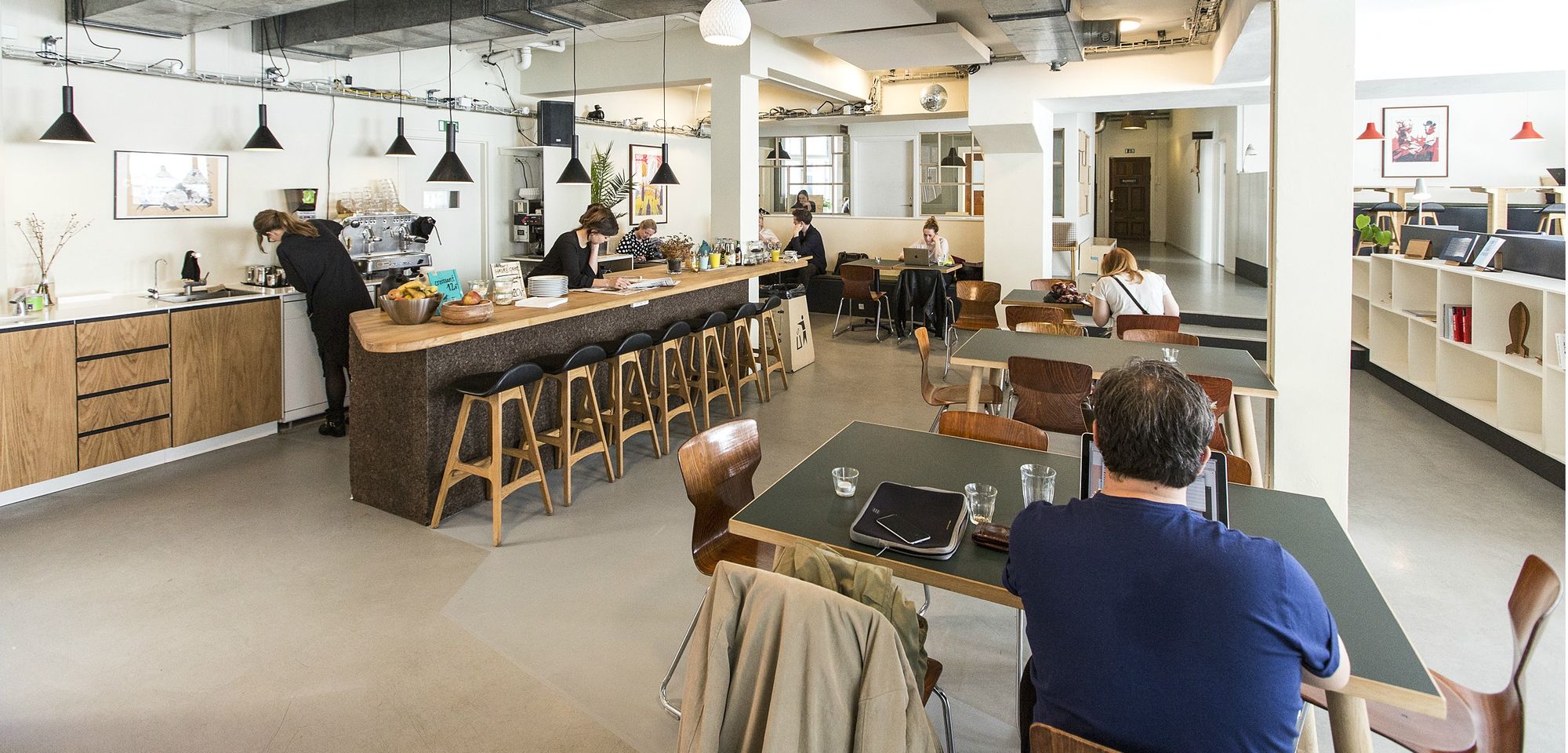
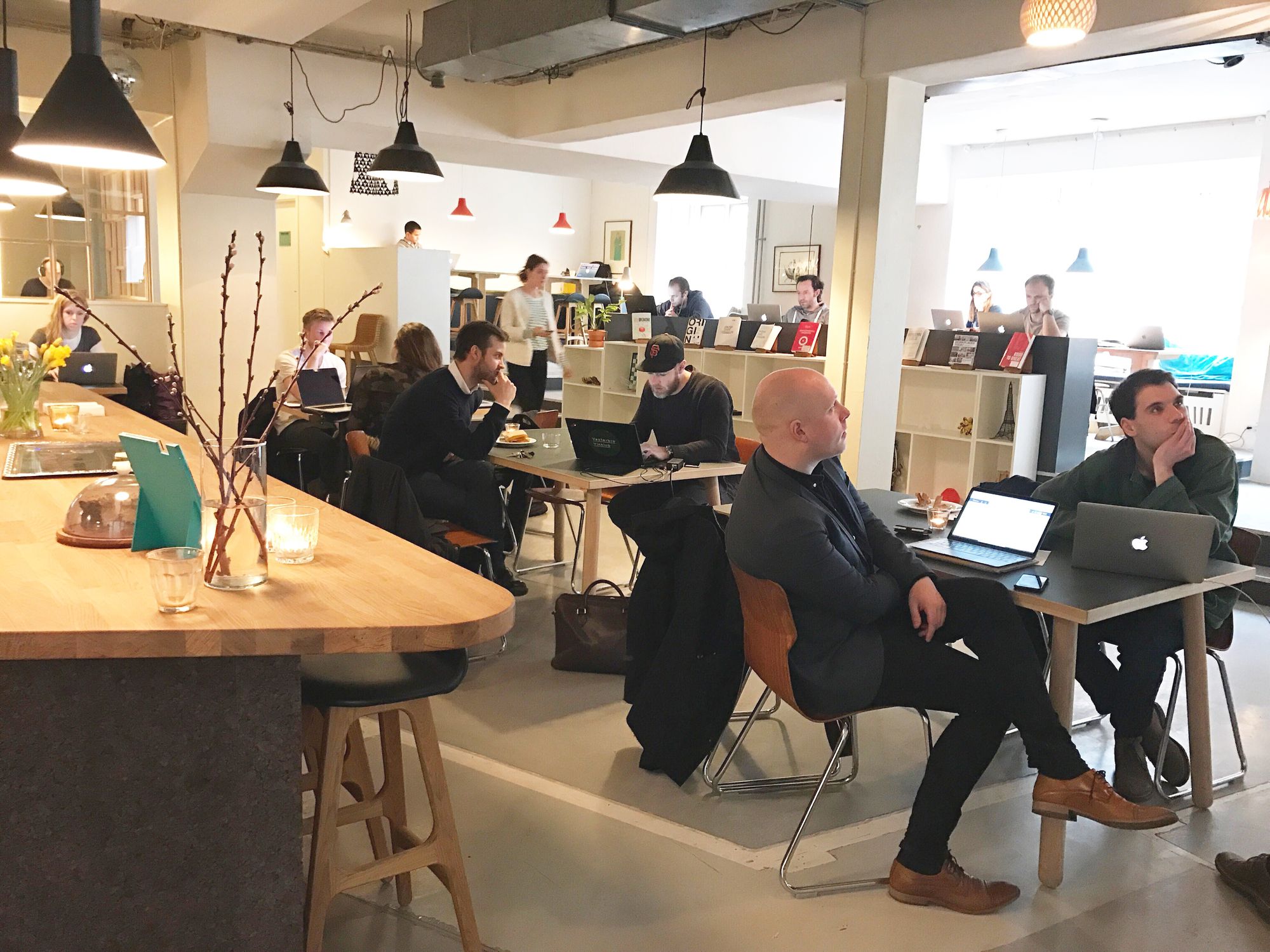
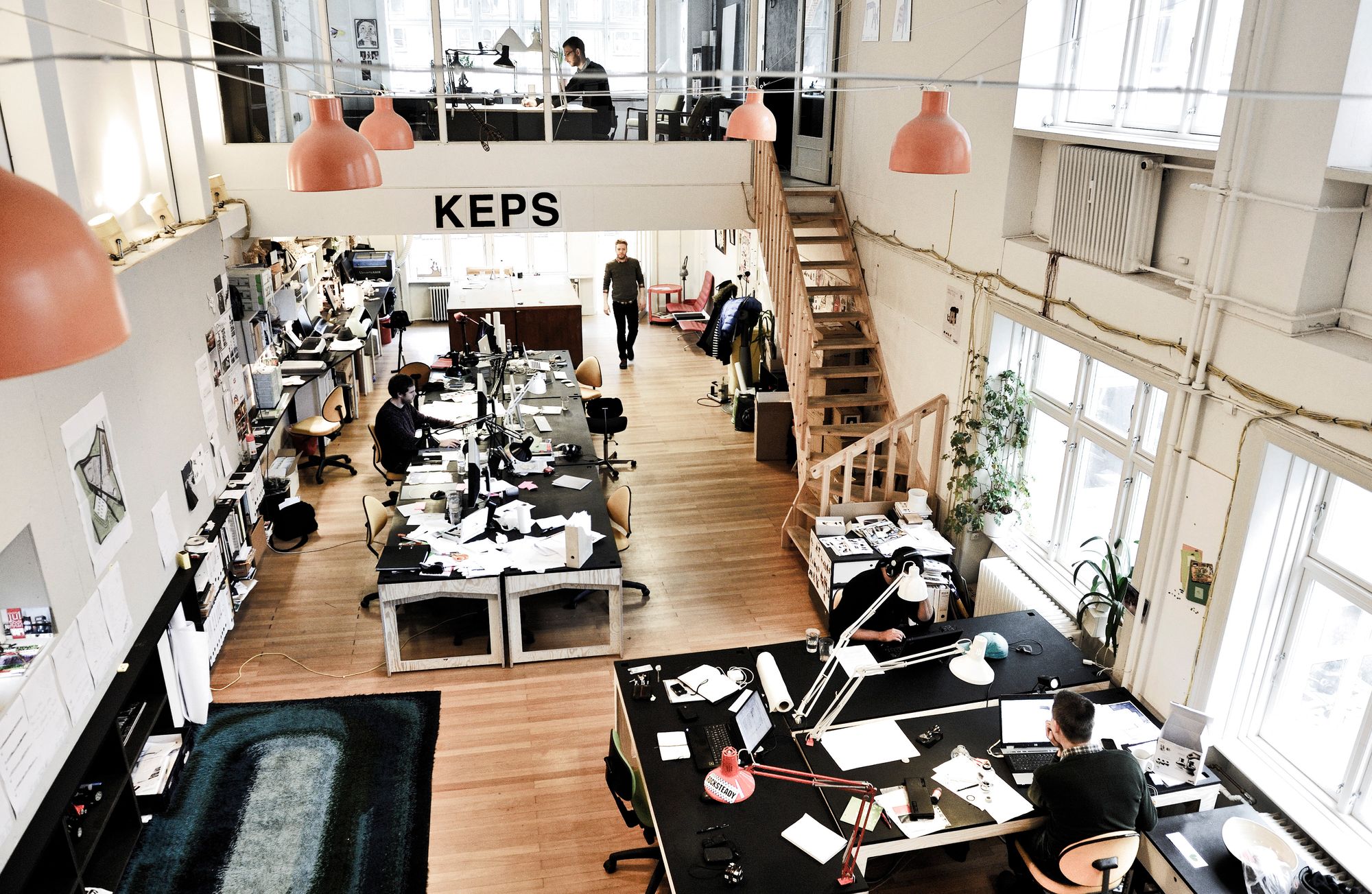
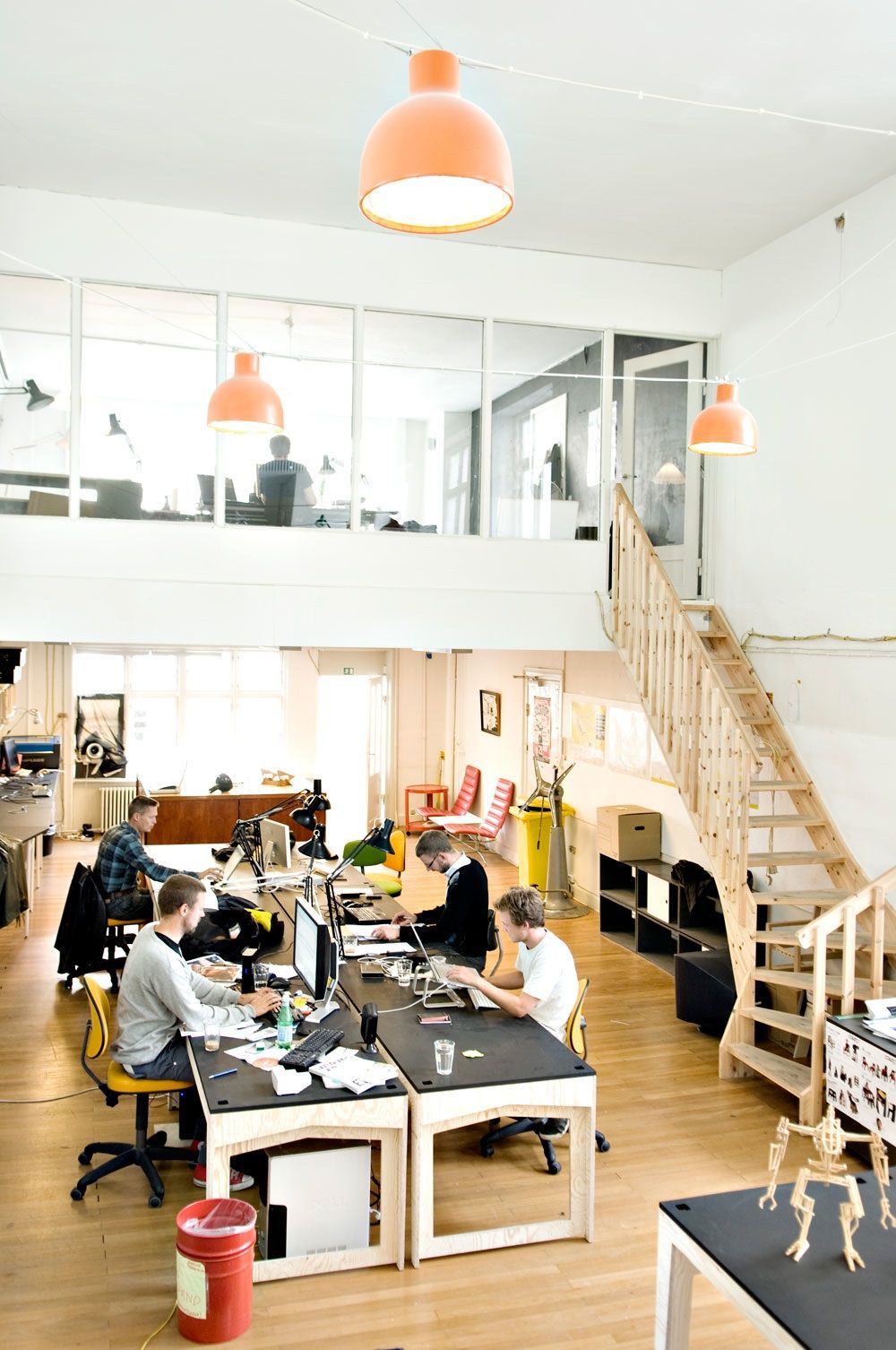
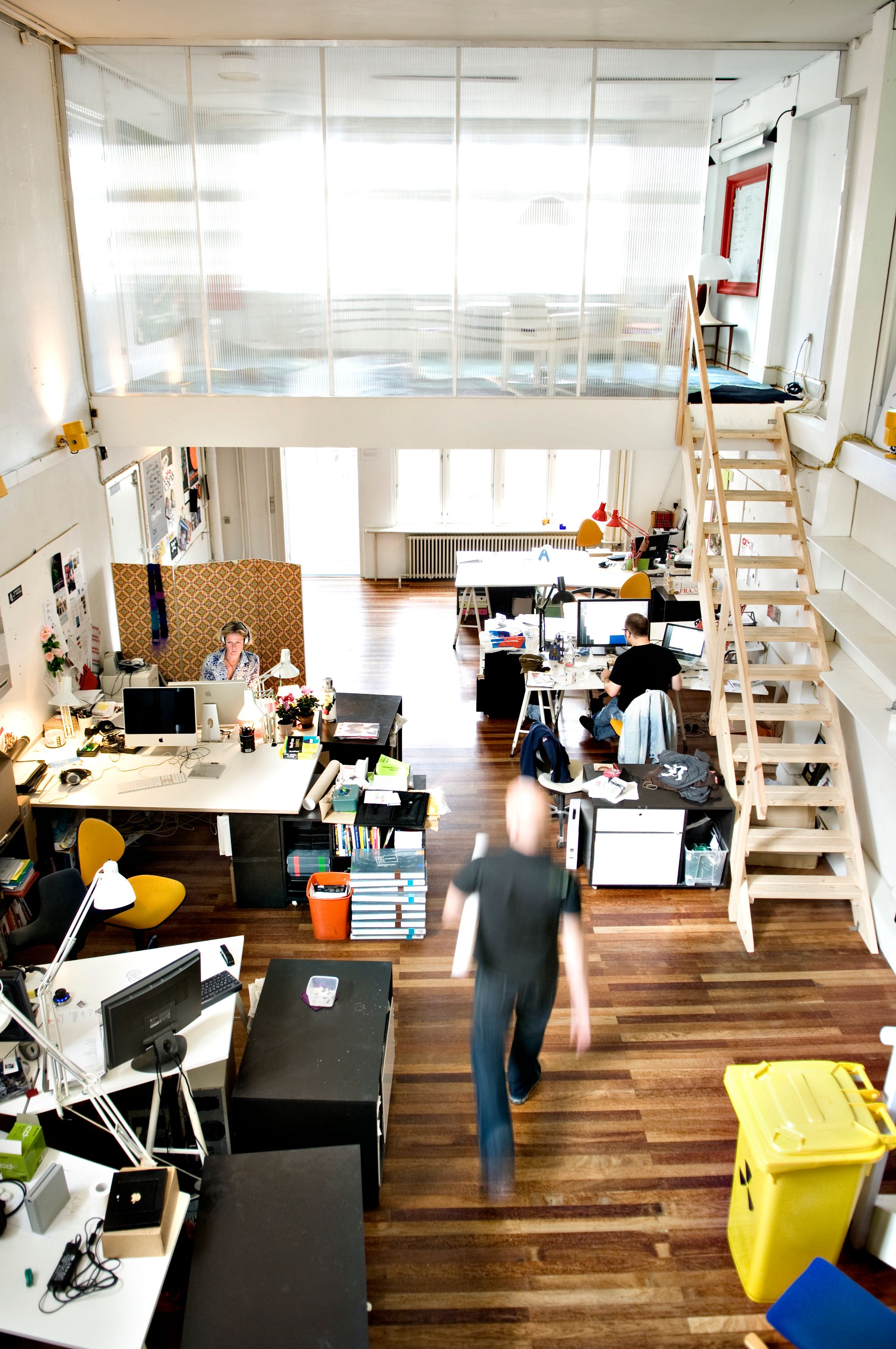
➡️ Behind-the-scenes
Things you didn't read in aw250cs
We changed the responsibility of our community manager, from managing to weaving.
Ivan Lopez Garrido, General Manager at Republikken
➡️ Republikken Today
Following the release of the book, we invited Ivan Lopez Garrido, the General Manager of Republikken, to join us online and chat about Republikken, in a post-pandemic context. What has changed? How did they navigate yet another challenge in their 17 years of existence? In all honesty, Ivan’s answers, and their way of coping with the pandemic are the perfect representation of how we see Republikken: a strong brand, keeping calm and doing things with people not just for them.
💫 From Community Management to Community Weaving
What if the secret of 17 years of existence lay in a strong vision? You’ll soon learn how the pandemic changed little of their initial vision for Republikken, but, supported what Ivan called their “community weaving” principles.
You read that correctly. The pandemic has been a real opportunity for Republikken to grow in different ways. Not just in size, but also in their understanding of their position and in the way the community shapes who they are to the outside world.
💬 How has COVID-19 impacted you guys in Copenhagen, and did it change anything for the overall vision behind Republikken?
No, this pandemic has not changed our vision at all. We are focused 100% on the same track, which is and has always been, to make a coworking space for people who want to get inspired. We want to connect people and we want to open up possibilities in their work life. We want to push an agenda for work-life balance. What we see is that many of our members come here as a second career. They chose to change their life. Work-life balance has become a common awareness point for many of our members. And that's why for us, it's easy to melt our network because many have already decided to change something. In the end, COVID changed a lot of things in our organization, but not the vision.
💬 Out of all the stories in the book, you're one of the spaces that has been around the longest. How have you seen your space and your community change over the years?
Back in 2005, we were a coworking space for designers, architects, and creatives. Then it got broader. People came from a wide variety of backgrounds. Around 2009 when new coworking spaces popped up in Copenhagen, we saw they all had their niches. One thing that happened was that all the members that didn't quite fit into Republikken and our spirit moved out. While the market got bigger and bigger in Copenhagen and became an industry all over the world, it has also made coworking spaces have better branding to talk to their target groups. The members that come to us now, have already been around searching and know what they like, and they pick us because we speak to them.
I would say that the members we attract are a much better fit than earlier ones. We developed a screening process, and we had to say no to some because we could just feel that this would not be a good fit.
You can charge way more now than you could ten years ago, even if you consider inflation. There's an awareness of what this costs to run from our customers and members.
💬 Speaking of community, you talked a lot about it in your story and you said it has been a big learning journey for you guys. How have you brought people together over the years? To quote you, how have you created that sense of unity?
In the beginning, bringing people together was very easy because our first group of members, the first 20, were all coming out of design school, art school, or architecture school. They were all on the same page. Unity was engrained in all of us.
Republikken is the Danish word for Republic.
The framing of our name was the French Revolution and its notion of unity and brotherhood. In the first few years, we were just going with that thinking, building our community by having social events. What we wanted was to connect everything. We started researching more about how networks function and we came across an article about network weaving.
We changed the responsibility of our community manager, from managing to weaving. Spending 3 hours a day talking to members is a good thing, but it's also costly in time and in salaries. We started developing ritual events, something we called learning groups. They are theme-based meetings bringing together 5 to 6 members, and covering generic topics like sales or business plans, or as we see now cryptocurrency.
The idea behind this is to let them work closely together for five or six meetings and afterward they not only know each other by name, but they also know their competencies, what they're good at, what they need, or how they can help others.
All the members that we have here also become weavers in the community. We started the learning groups five years ago, and it's working well. We see it helps to build a tight-knit community.
💬 Speaking of COVID and community, how has it impacted your community vision?
That was quite a challenge because we have always stressed that we are a physical community. We don't do online activities. We don't want members only having a postal address here. We want people coming in. The truth is that we never closed for members.
Every member still had access, but we needed to divide the public into clusters so that people didn’t move around. We ended up with what we didn’t want, but we had to build clusters and try to make people stay in their zones.
I learned that in one cluster we created, members had a meeting at the beginning of the first lockdown and promised each other that if anyone in this group tested positive, (s)he would inform everyone else. They shook hands on this decision and built their bubble! This was a huge success story for me, learning that our members were taking this responsibility and building a bubble in which they expect everyone to act with the interest of the community.
💬 Did the pandemic change the interior design of Republikken?
No, not really, because our workspace is spacious, and we already had a lot of space between desks. But what we did was to put up dividers between two desks facing each other.
In the community area, we took away 40% of all the chairs so that people couldn't sit close. We also took away tables that were too close to each other and used the big tables we had as a one-person desk.
We also discovered that many of our members kept their membership, but they stopped coming. And they did that to help us survive, keep us afloat. We were very happy about this.
💬 Have you seen new crowds of people coming to your door?
Yes, expats are coming more, working remotely for another company. They're coming and they're dying to have colleagues. It's wonderful because they are full of energy. We now have many Italians coming in. We usually have a lot of Swedes, Norwegians, Germans, people from England or Scotland. But suddenly there are lots of people coming from the Mediterranean area.
➡️ Reflections on Building Republikken
💬 When you look back at the whole history of Republikken and your part in it, what would you say has been your biggest personal learning out of bringing it to life?
I still get amazed at how a community can regenerate itself with simple methods. Having this group and trust bond with our members is so special.
We don't have locks in here, everything is open. And I am amazed at how people and our members keep this trust between themselves and us, because without that trust, I think, it would all be very, very different. We have members coming from all around the world and it always surprised them to see no locks on our desks or computers. We do, of course, lock up the building. But besides that, when you're in, it's open.
Another big learning is that even though we get older and the average age of our members is rising, people are still open to meeting new people, connecting, and picking up friendships. I had this idea that when you're 35, you're done with making new friends. But this is not the case. Which is, for me, an extremely positive thing.
So trust and friendship are two of the big learnings for me. But then, if we look at it as a business, I would say that stubbornness and keeping the focus on your vision are key. Trust what you have. Keep following it and use it as a guiding star.
I never believed in all those things, to be honest. But I can see how it has helped us, especially in these times, because we have changed nothing in our vision and our member plans. Which is amazing after so long.
💬 If someone came and said to you tomorrow: “Ivan, I'm thinking of opening a coworking space”, what would be your first piece of advice to him or her or them?
I would ask them. Who is your community? And then when they know the community, we can start having talks about vision and money streams, business plans, marketing, buildings, and all that stuff.
💬 And if you could chat with a coworking operator right now, not someone necessarily from Copenhagen, let's say, from anywhere in the world, what would you like to ask them?
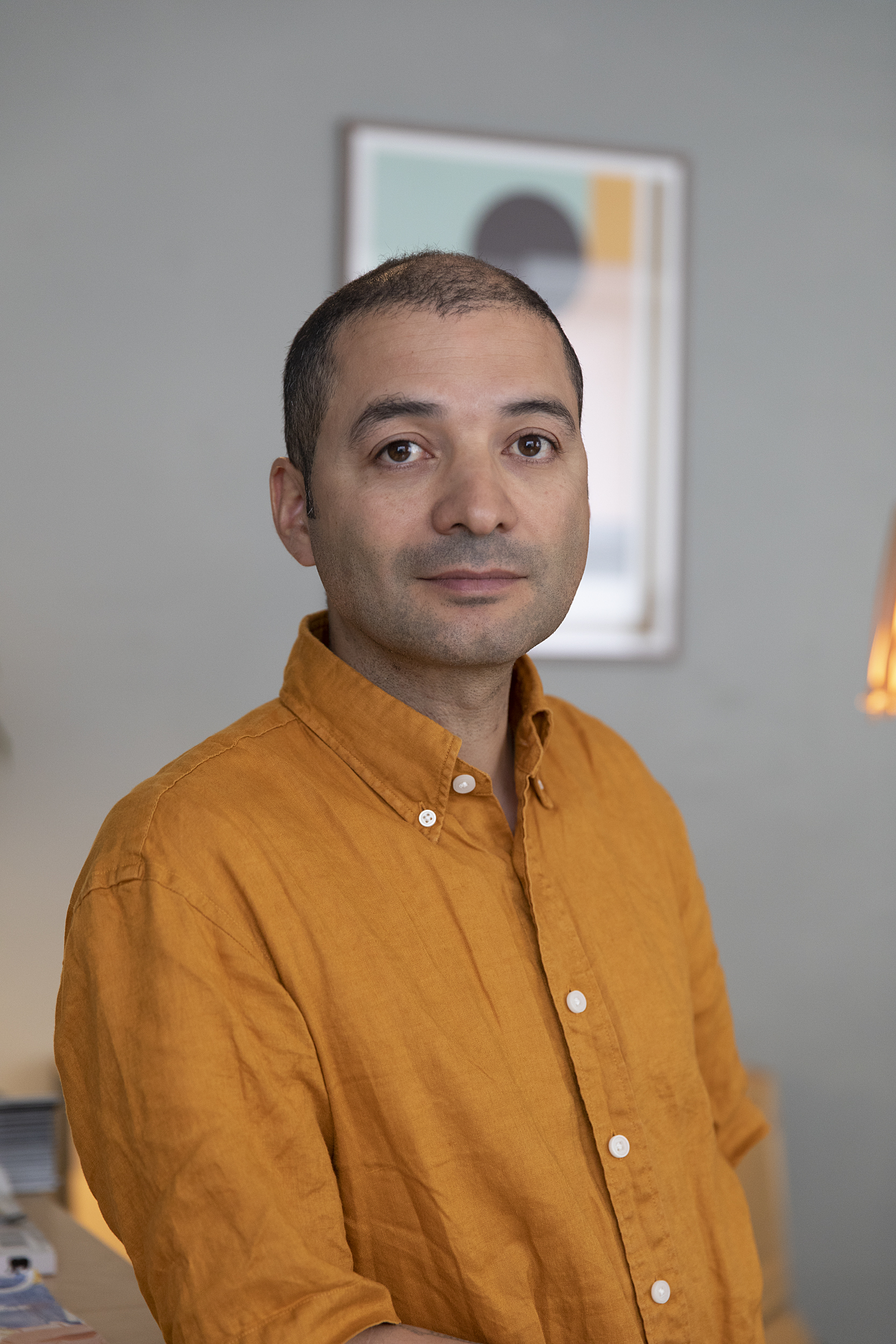
💬 If you were to ask anything to people using coworking spaces regularly, what would you like to ask them?
When people come here, I always ask them, especially if they're expats, why did you come to Copenhagen? And then when they sign up, I ask them: why have you chosen us? When they've been here for a while I ask: what do you think about us?
But a more generic question would be, why do you want to work in a coworking space?
💬 What do you feel collaborative workspaces need more of to be recognized and adopted by more people?
Awareness. Simple awareness in society. There are two levels to this.
Awareness from society as a whole, like anyone on the street, knows that this industry is here. Whenever they need someone, they can say, “Oh, I just have to go to a coworking space”.
And the other side is on a more governmental level and in seeing coworking spaces as the kind of hub they can be. I have connected with a lot of small enterprises, businesses, and self-employed entrepreneurs.
But it’s hard to begin a dialogue with the government, because, and I can only speak for Denmark here, I think that from a government point of view; they don’t have enough information about this type of business and small entrepreneurs to figure out what their needs are. We are their best gateway.
💬 What's your biggest dream for Republikken?
That's a tough question because there are many sides to it. Having a background in Chile, I would love to open a coworking space in Chile by the sea. Of course, that's not a bad idea. I could manage that one in the wintertime in Europe, which is summertime in South America.
That's maybe a very romantic dream.
We could do with more square meters. We used the latest lockdown to expand. I don't know why, but that's how it was when there was an economic crisis in 2009. We also expanded. It's often in times of crisis that the true power or the true impact of coworking spaces comes into its own, and then they have this opportunity to grow afterward.
Let’s discuss the story of Republikken on Discord! Come join our extended community of readers by clicking on the link below.

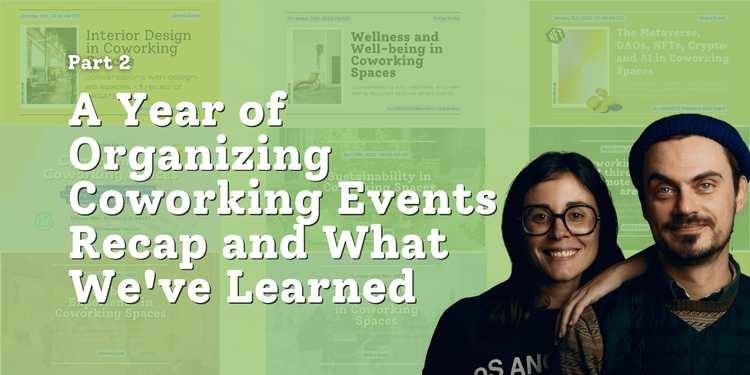




Member discussion